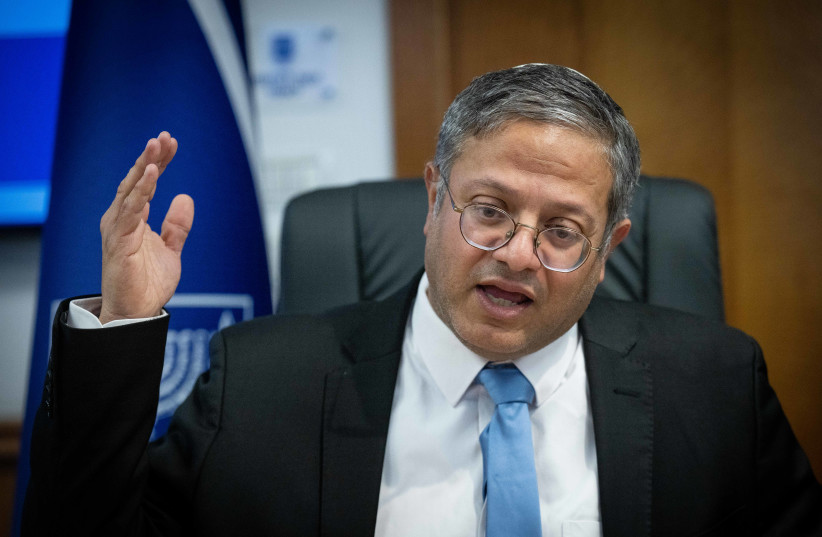The Ministerial Legislation Committee approved a bill on Monday to allow the use of facial recognition cameras in public spaces to fight crime, especially in the Arab sector.
The bill, which was submitted by National Security Minister Itamar Ben-Gvir and Justice Minister Yariv Levin, was dismissed in February for having too vague an interpretation of when the cameras could be used.
The Knesset will vote on the new draft in a special plenum session on Tuesday after the bill was adjusted to allow the use of the cameras only for cases of “severe crime” and protection-related crimes. The new draft also has a clause that will forbid their use to enforce freedom-of-speech events such as protests as well as a three-year prison sentence for anyone who abuses the use of the cameras.
Severe crime is defined for the purposes of the bill as crimes that carry a sentence of seven or more years in prison as well as a few other specific crimes listed in the bill.
The bill proposes to allow Israel Police to set the cameras to alert them when they pick up on a specific face or to retroactively search through footage to find a face. Both uses will only be authorized when the police have specific information that indicates that it is necessary as per the bill’s specifications.

All other data collected by the cameras will remain confidential and be deleted after 72 hours.
All other data collected by the cameras will be deleted after 72 hours
“These uses allow the police to trace the identity and location of suspects and therefore are a useful and effective tool for recognizing and preventing crime and allowing the police to maintain public order and protect the peace and safety of the public,” according to the bill proposal.
The draft seeks to allow the cameras to be used for preventing, thwarting, or solving serious crimes and recognizing suspects involved in the planning or execution of them; preventing severe mental or physical damage to others or property; finding missing persons or people who are in danger; and enforcing restraining orders.
“We have brought a precise and balanced law,” said Ben-Gvir. “While the number of murder victims in the Arab sector rises and protection crimes are common, there is great importance for cameras that recognize faces, which are common worldwide. At the same time, on our watch, we will do everything to prevent inappropriate use of the cameras and, therefore, we have set a prison sentence and have limited the use for severe incidents like serious crime and protection.”
While the bill was met with much criticism from the opposition, who called it the “Big Brother Law” in reference to George Orwell’s dystopian novel 1984, the Office of Legal Counsel and Legislative Affairs issued a statement on Monday supporting the bill.
